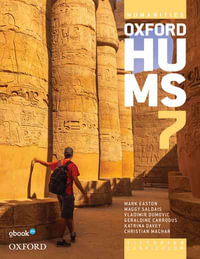'Covering a sweep of time from the Book of Revelation and the early Middle Ages through the twelfth century (with an eleventh-hour stop at the country-western Louvin brothers), Gabriele and Palmer's Apocalypse and Reform assembles a team of experts to challenge assumptions about medieval attitudes towards the end of the world. Rather than presenting us with panicking peasants or wild-eyed millenarian revolutionaries, the essays in this masterful volume rightly place the apocalypse at the center of medieval society, culture, and politics, discernable in works of exegesis, prophecy, art, theology, the liturgy and more. The editors and authors are to be applauded.'
Brett Whalen, University of North Carolina at Chapel Hill, US
'The world seems to be continually nearing its end. From the disintegration of the Western Roman Empire to the A-Bomb, an imminent end had been in sight and triggered social, cultural and religious transformations. In this coherent and impressive collection, each article firmly locates this phenomenon within diverse geo-political, cultural and religious contexts. Appealing to students and academics alike, this volume constitutes an important step in the rehabilitation of the Apocalypse. No longer the confines of historians of religion and radicalism, its editors bring the apocalypse into global history.'
Eyal Poleg, Queen Mary University of London, UK
'As a whole, the volume works well as an introduction to the complexity and variety of apocalyptic thought in the Latin Christian tradition up to 1200 CE, and to the existing historiographical field. Each essay has extensive notes and references that will be particularly useful to students. The strongest essays are those that offer a reassessment or correction to major works of scholarship in the field of medieval apocalyptic thought, including seminal works by Richard Landes, Bernard McGinn, and Sylvain Gouguenheim. As an intervention in the field of reform studies, Apocalypse and Reform from Late Antiquity to the High Middle Ages opens a potentially rewarding approach to interpreting early and high medieval reform rhetoric.'
Alexandra Locking, University of Chicago, USA
"Overall it significantly enhances scholarly understanding of medieval apocalyptic reform."
Maeve Callan, Simpson College, USA
"Overall, the collection makes a convincing case for the part played by Apocalyptic thinking in the calls for moral improvement for individuals"
Julia Barrow, Early Medieval Europe, vol.27, issue 4
























